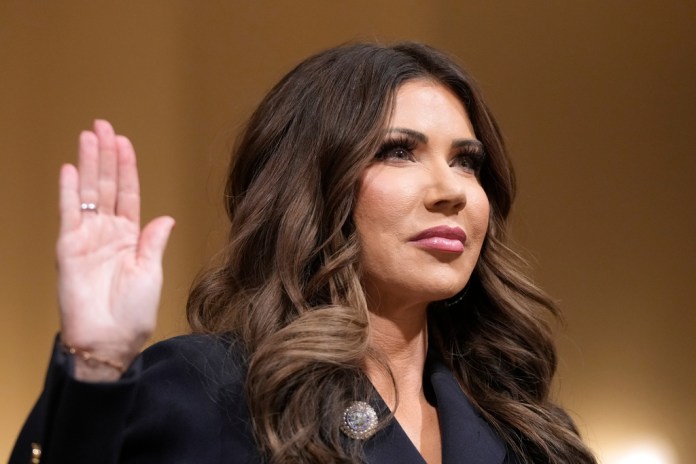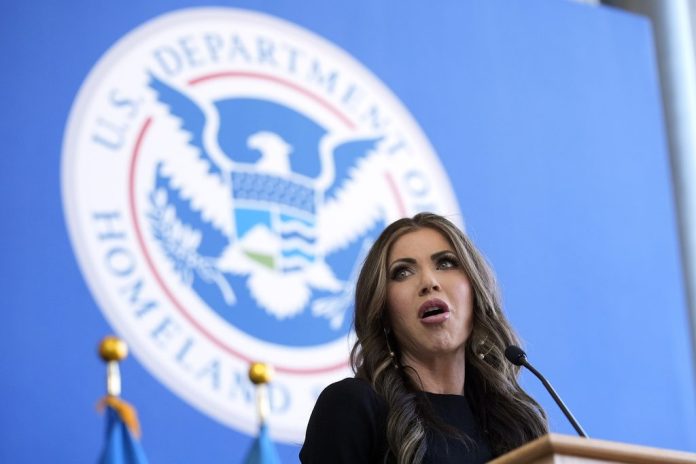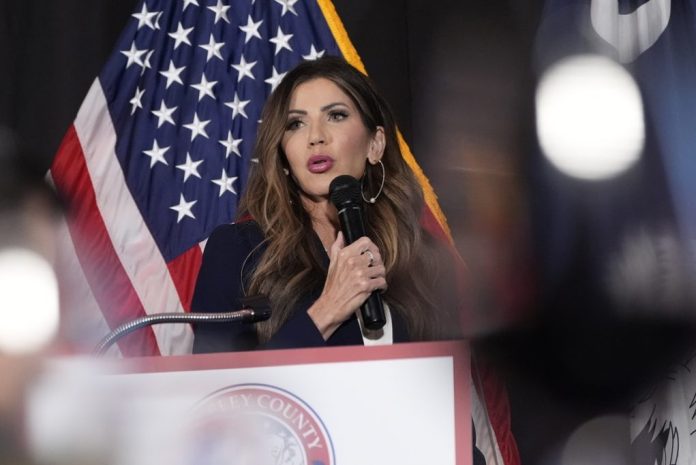Noem makes nice with Native tribe who banished her – Washington Examiner
Governor Kristi noem of South Dakota has been reinstated by one Native American tribe after she faced bans from all tribes in the state last year. The bans were a reaction to her comments about a drug cartel that upset the tribal leaders. The article discusses the implications of Noem’s reinstatement and her efforts to mend relationships with Native tribes in South Dakota. Governor Kristi Noem’s reinstatement by one Native American tribe marks a significant shift in her relationship with Native communities in South Dakota. Following last year’s widespread bans imposed by several tribes in response to her controversial comments regarding a drug cartel, this development suggests a potential thaw in tensions and a willingness to engage in dialog.
The initial bans were reactions to Noem’s remarks,which tribal leaders felt undermined their communities and mischaracterized their experiences with drug-related issues. Her comments sparked outrage, highlighting the sensitive nature of discussions surrounding drug use, crime, and tribal sovereignty.
In the wake of the bans, Noem has been actively seeking to improve relations with Native tribes. This includes participating in dialogues aimed at addressing concerns, building trust, and promoting collaborative efforts on issues ranging from public health to economic development. Her reinstatement by one tribe could indicate progress in these efforts, suggesting that the overarching goal of reconciliation is taking shape.
Though, the implications of this reinstatement extend beyond Noem and the tribes involved. It reflects broader themes of governance, representation, and the importance of understanding and respecting tribal sovereignty in policymaking. As Noem continues her outreach, the outcome of her efforts may serve as a model for similar interactions elsewhere, emphasizing the need for mutual respect and open communication between state governments and Native American tribes.
Noem’s reinstatement signifies a potential turning point in her relationships with South Dakota’s Native tribes, with implications for both state governance and community dynamics. The ongoing efforts to mend these relationships will be closely monitored and could have lasting impacts on policy and collaboration in the region.
Noem makes nice with Native tribe who banished her
Gov. Kristi Noem (R-SD) has been unbanned from one tribe in South Dakota after every tribe in the state banned her last year.
Days before her confirmation hearing to lead the Department of Homeland Security, Flandreau Santee Sioux tribe announced it was lifting its order to ban Noem. She was previously banned from all of the state’s nine tribes after publicly claiming that tribal leaders were working with drug cartels.
“The Governor issued an apology to us for the misunderstanding, which was exacerbated by misinformation,” the tribe’s press release reads. “Since our first meeting, the Governor has shown us that she is committed to protecting the people of South Dakota including the citizens of the nine Tribal Nations, who share mutual borders with the state.”
REPUBLICANS TURN TO 2025 GOVERNOR BATTLES AS PARTY LOOKS TO RIDE 2024 SUCCESS
In a letter addressed to Noem, the tribe additionally complimented Noem on her “nomination by President Elect Donald Trump to the position of Secretary of U.S. Department of Homeland Security,” and expressed confidence in her future endeavors.
It is unclear at this time if Noem’s banned status in other tribes has changed. In 2024, all nine South Dakota tribes banished Noem from their lands due to her defamatory comments. The Flandreau Santee Sioux Tribe was the final tribe to banish her. The governor had repeatedly claimed tribal nations aid Mexican drug cartels.
“We’ve got some tribal leaders that I believe are personally benefiting from the cartels being there, and that’s why they attack me every day,” Noem said in March of last year.
Regarding the tribal ban, Noem said she only wanted to “speak truth.”
“I only want to speak truth to the real challenges that are being faced in some areas of Indian Country,” Noem said in a statement provided to the Washington Examiner at the time the Flandreau Santee Sioux tribe banned her.
Until the Flandreau Santee Sioux tribe’s announcement, Noem was banned from nearly 20% of South Dakota over her remarks. South Dakota is home to more than 71,000 Native Americans.
Noem is slated to appear before the Senate Committee on Homeland Security and Governmental Affairs on Friday as she is being considered for secretary of homeland security.
" Conservative News Daily does not always share or support the views and opinions expressed here; they are just those of the writer."




